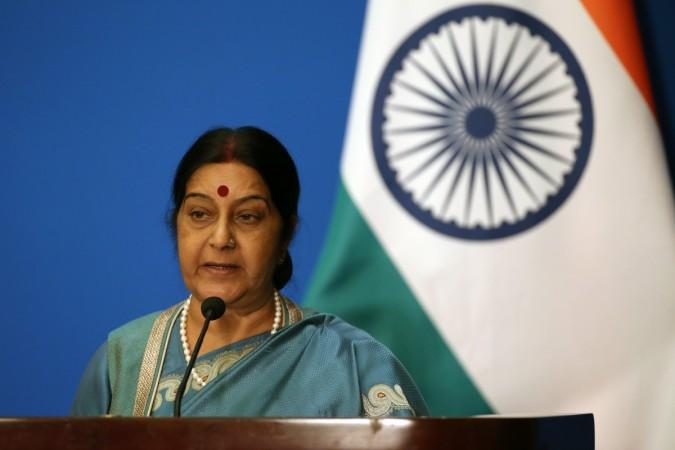External Affairs Minister Sushma Swaraj had lashed out at Pakistan during the United Nations General Assembly session in New York on Saturday, September 23. Swaraj had said that while India is known to the world as a global IT giant, Pakistan is an "export factory for terror."
"We established scientific and technical institutions which are the pride of the world. But what has Pakistan offered to the world and indeed to its own people apart from terrorism? We produced scholars, doctors, engineers. What have you produced? You have produced terrorists. Doctors save people from death; terrorists send them to death," Swaraj had said.
Now, speaking of the speech, Chinese daily the Global Times in an editorial has said that the speech reeked of arrogance and even compared it to US President Donald Trump's outlook. "By inflaming nationalism in the Indian public, Indians become more determined to make India first than even US President Donald Trump's 'America First,'" it said.
The Chinese daily also said that India wants to be a world power and if it doesn't manage to reach this goal, it tends to blame other nations who care about their national interest and work towards their development.
While the Global Times did admit that there was terrorism in Pakistan, it raised questions on India's stand that the country is "exporting terrorism." It said that India was bigoted when it came to Pakistan and refused to believe that there may be anything good in the country.
"What can Pakistan gain from exporting terrorism? Money or honor? Is India really an IT superpower that produces engineers and doctors when it is hell-bent on believing Pakistan is evil?" it questioned.

Speaking about India and its foreign affairs, the Global Times said that considering the fact that India has seen quite some development in its economy and its foreign relations, the country has gotten arrogant and haughty. "It takes for granted that it should be feared by neighbours and wooed by the US and Europe," also opined that "India should befriend China and respect Pakistan, preventing disputes from spilling over. Holding on to its peripheral diplomacy of good-neighborliness, China has no desire to confront India. Hostility does no good for China."
The editorial then went on to explain that India must learn lessons from the Doklam standoff and "rid itself of incomprehensible smugness." It said that the nation must understand that this is the 21st century and disputes and wars are not the way to deal with conflicts. And when a nation is trying to protect its interests, it should also make an effort to understand others' interests and not cause a conflict to them.
"It is politically imbecilic and unsophisticated for Indian elites to conclude that Pakistan exports terrorism. They should have seen the efforts and sacrifice that Pakistan has made to rid the world of terrorism and refrain from mixing disputes over terrorism with their own historical disputes," the editorial said.








